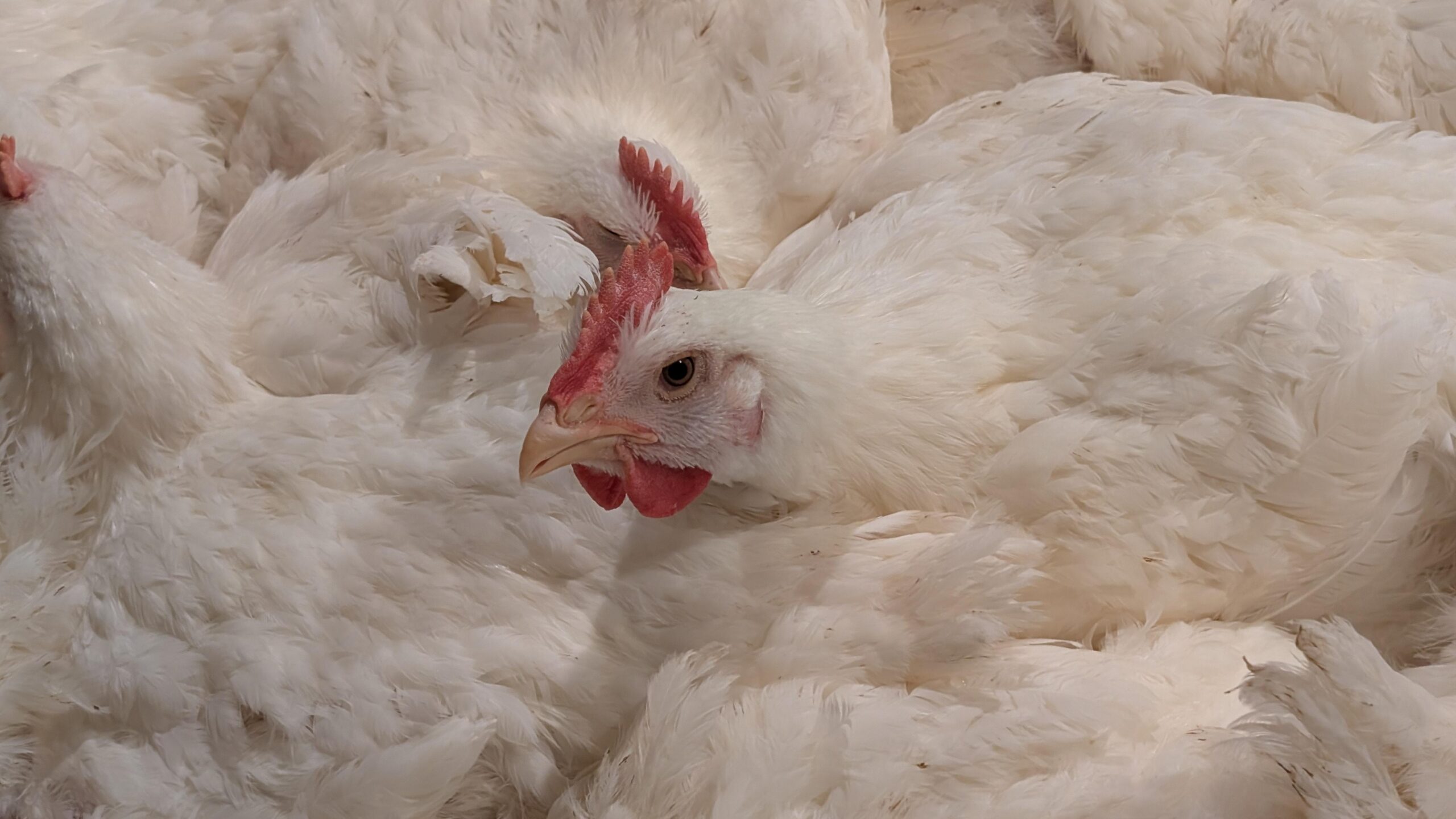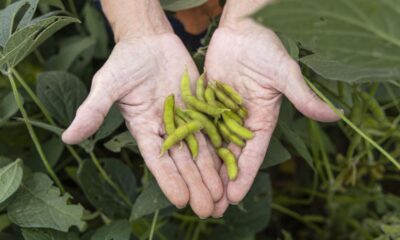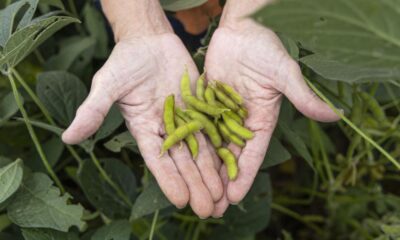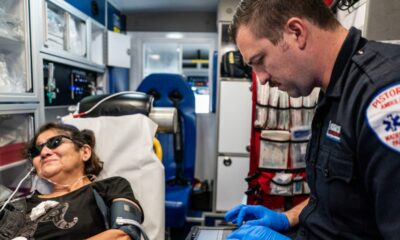Science
GTRI Unveils Innovative Technologies to Enhance Poultry Farming

The Georgia Tech Research Institute (GTRI) has developed two groundbreaking technologies aimed at improving climate and moisture control in poultry houses. These innovations promise to lead to healthier birds and significant cost savings for farmers.
GTRI’s efforts focus on mitigating common challenges faced by poultry producers, particularly in maintaining optimal environmental conditions for their flocks. Poultry houses often struggle with humidity and temperature fluctuations, which can adversely affect bird health and overall productivity. By addressing these issues, GTRI aims to enhance animal welfare and, in turn, improve farm profitability.
One of the key technologies involves advanced climate control systems that utilize real-time data to adjust environmental settings automatically. This system not only regulates temperature but also monitors humidity levels, ensuring a consistent and healthy habitat for the birds. The second technology focuses on moisture management, employing innovative materials to absorb excess humidity, thus reducing the risk of disease and improving air quality.
These developments come at a critical time when the poultry industry faces increasing pressure to enhance production efficiency and sustainability. According to industry reports, effective climate and moisture control can reduce mortality rates and improve feed conversion ratios. This translates to healthier flocks and potentially lower operational costs for farmers.
Farmers who adopt these technologies could see a reduction in veterinary expenses and an increase in the overall health of their poultry. The financial implications are significant, as healthier birds lead to better market prices and greater consumer trust in poultry products.
GTRI is actively collaborating with poultry producers to pilot these technologies in real-world settings. The institute’s commitment to research and innovation is evident as it seeks to address the evolving challenges within the agricultural sector. By integrating scientific advancements with practical applications, GTRI aims to set new standards in poultry production.
This initiative highlights the broader trend of leveraging technology to foster agricultural sustainability. As climate change continues to impact farming practices globally, innovations like those developed by GTRI could play a pivotal role in ensuring food security and resilience in the poultry sector.
The potential impact of these technologies extends beyond just individual farms. A healthier poultry industry contributes to stable food supplies, which is crucial as global demand for poultry continues to rise. With approximately 1.5 billion chickens produced annually worldwide, enhancing poultry farming practices is vital for both economic and environmental sustainability.
In conclusion, GTRI’s advancements in climate and moisture control technologies not only promise to transform poultry house operations but also reflect a significant step toward a more sustainable agricultural future. As these technologies are implemented and refined, they could pave the way for broader innovations in the industry, ultimately benefiting farmers, consumers, and the environment alike.
-

 Technology5 months ago
Technology5 months agoDiscover the Top 10 Calorie Counting Apps of 2025
-

 Health2 months ago
Health2 months agoBella Hadid Shares Health Update After Treatment for Lyme Disease
-

 Health3 months ago
Health3 months agoErin Bates Shares Recovery Update Following Sepsis Complications
-

 Technology4 months ago
Technology4 months agoDiscover How to Reverse Image Search Using ChatGPT Effortlessly
-

 Technology1 month ago
Technology1 month agoDiscover 2025’s Top GPUs for Exceptional 4K Gaming Performance
-

 Technology2 months ago
Technology2 months agoElectric Moto Influencer Surronster Arrested in Tijuana
-

 Technology5 months ago
Technology5 months agoMeta Initiates $60B AI Data Center Expansion, Starting in Ohio
-

 Technology5 months ago
Technology5 months agoRecovering a Suspended TikTok Account: A Step-by-Step Guide
-

 Health4 months ago
Health4 months agoTested: Rab Firewall Mountain Jacket Survives Harsh Conditions
-

 Lifestyle5 months ago
Lifestyle5 months agoBelton Family Reunites After Daughter Survives Hill Country Floods
-

 Technology4 months ago
Technology4 months agoHarmonic Launches AI Chatbot App to Transform Mathematical Reasoning
-

 Technology3 months ago
Technology3 months agoUncovering the Top Five Most Challenging Motorcycles to Ride





















